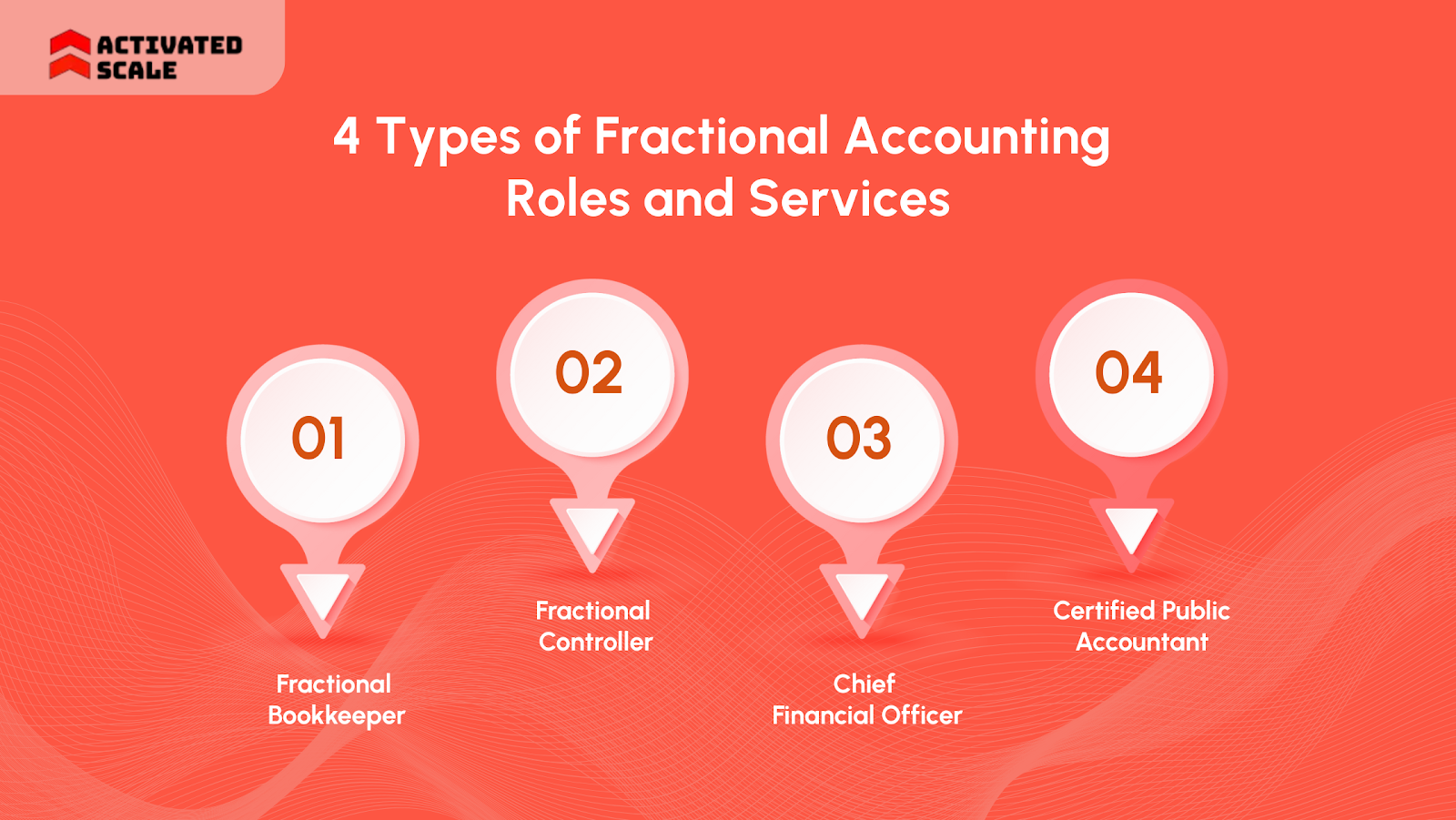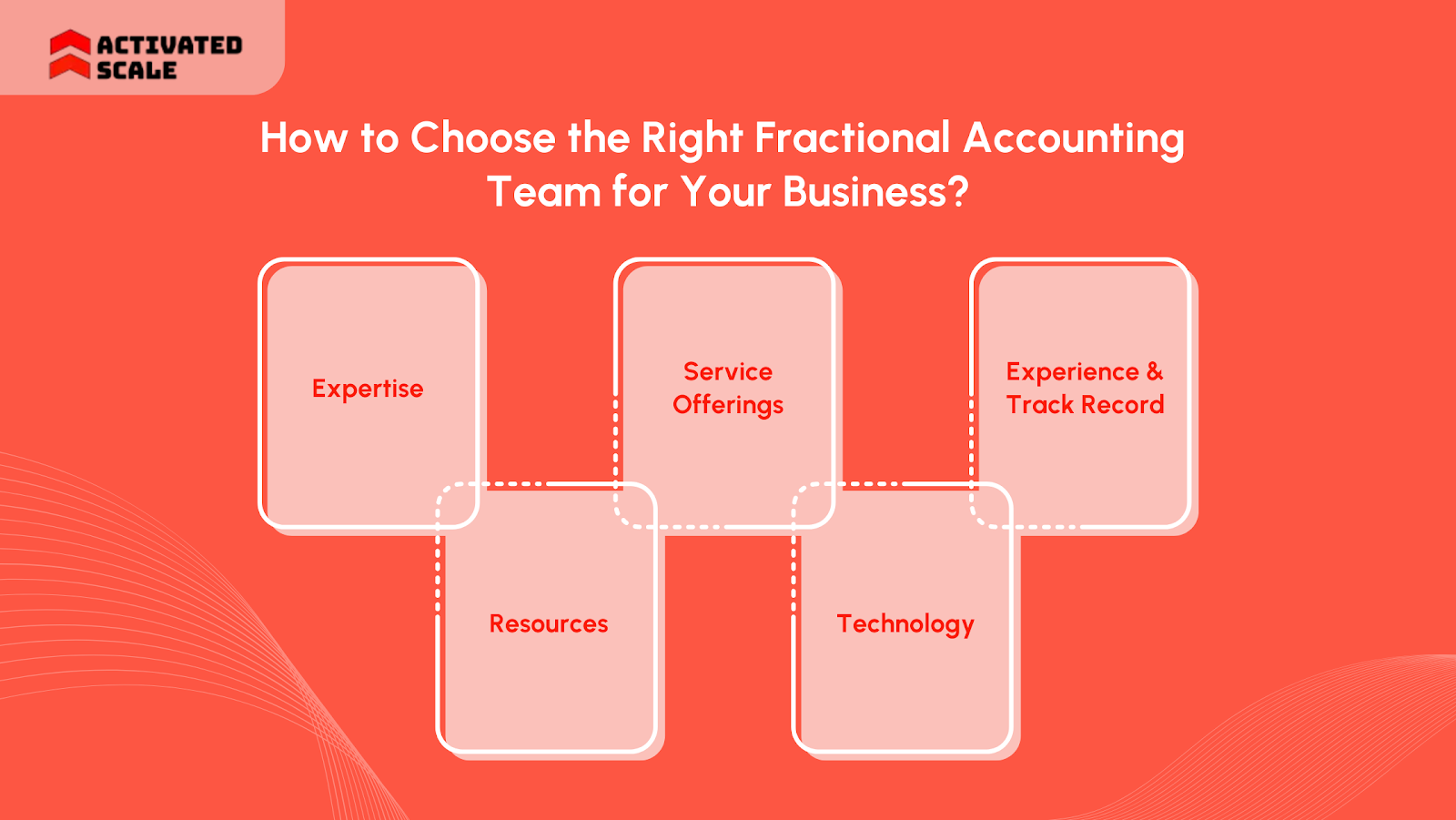For startups and small-to-mid-sized businesses (SMBs), the passion for your product or service often meets the hard reality of limited resources. A common, critical challenge emerges while handling complex financial management without a dedicated expert.
Many visionary leaders find themselves in a bind. They can't justify the cost of a full-time CFO or senior accountant, yet they desperately need strategic financial guidance.
This gap often leads to poor financial management, which is one of the main reasons most startups fail. The data confirms this widespread struggle.
But what if there was a way to access top-tier financial expertise without the full-time price tag? In this blog, we’ll explore fractional accounting, the affordable, flexible solution that provides on-demand financial leadership.
Takeaways
- Fractional accounting provides affordable, expert financial management for startups and SMBs.
- Fractional accounting offers a clear value proposition from optimizing your finances to reclaim your time to focus on what you do best: Growth of your business.
- Fractional accounting covers a wide range of services, such as bookkeeping, tax compliance, payroll processing, cash flow management, financial forecasting, etc.
- Fractional accountants help businesses handle financial challenges and prepare for key milestones like audits and strategic planning.
- The pricing models for fractional accounting vary, with hourly rates, monthly retainers, and project-based pricing.
What Do You Need to Know About Fractional Accounting?
Fractional accounting allows businesses to access financial professionals on a part-time, project, or as-needed basis.
They provide growing companies the experience of a veteran CFO without the prohibitive cost of a full-time salary.
This approach enables companies to delegate critical financial tasks. For example, bookkeeping, payroll, tax strategy, financial forecasting, and strategic planning.
Now, you know how it works, but you might be wondering: What does this actually do for a growing company?
With a clear definition in place, the compelling benefits for startups are our next focus.
Also Read: Choosing a Top Outsourced SDR Company in the USA
Why Does Your Startup Need Fractional Accountants?

You launched with a vision, but now your time is consumed by bookkeeping and billing. You know there's a story in your numbers, but you don't have the time or expertise to read it.
Fractional accounting is the co-pilot you need, turning financial data into your roadmap for growth. Here's how your business can benefit:
1. Affordable Financial Expertise
Startups often operate on tight budgets, making full-time hires for accounting positions a luxury many can't afford. Using a fractional controller instead of a full‑time hire can save businesses 40‑60% of the cost.
With customizable pricing, businesses only pay for the services they actually need. This helps startups allocate financial resources more efficiently and cost-effectively.
2. Specialized Knowledge When You Need It
Fractional professionals help businesses make informed, smarter financial decisions by providing strategic guidance while refining operational efficiency.
Accessing this knowledge reduces risks, improves decision-making, and sets the stage for long-term growth.
3. Adaptable and Scalable Financial Support
As startups grow, their financial needs also change. So, a startup needs extra support in preparing for an investor pitch or financial oversight as it expands.
Fractional accounting can be adjusted to meet these needs. This scalability ensures that businesses only pay for the expertise they require, when they require it.
4. Focus on What Matters Most
Founders and business leaders often wear many hats. However, by outsourcing financial management to fractional experts, you can concentrate on driving the business forward.
With day-to-day financial tasks taken care of, they can focus on innovation, market expansion, and building strong customer relationships.
5. Efficient Payroll Processing
With a fractional accountant handling your payroll operations, you gain a guarantee of timely and precise wage distribution.
This allows you to focus on strategic goals without worrying about critical administrative deadlines.
6. Tax Benefits
Managing taxes is a complex task, but fractional accountants, especially fractional tax CPAs, ensure compliance and identify opportunities to reduce tax liabilities.
For startups, this could mean accessing tax optimization, deductions, and deferrals that might otherwise be missed.
Fractional accountants save valuable capital for reinvestment in the business.
7. Instant Relief
Managing finances on your own can be stressful, especially when you're trying to grow your business. Fractional accounting gives business owners peace of mind, knowing their financial operations are in the hands of experts.
8. Advanced Fractional Services
Fractional accounting firms often provide access to advanced financial services like strategic planning, risk management, and business intelligence.
These services are typically only available to larger businesses with full-time finance teams. However, they can be accessible to startups and SMBs through fractional accounting now.
If you're ready to organize your financial management and access top-tier accounting expertise, consider hiring our Fractional Sales Leadership professionals. Our experienced team can help you build go-to-market strategies and design sales playbooks, all while staying within your budget.
Equipped with a clear view of the advantages, the next step is to find your perfect fit. You can think of a fractional firm as a menu of strategic roles you can activate to build your ideal finance function.
Read Also: Importance of a B2B Fractional CMO
4 Types of Fractional Accounting Roles and Services

The true power of fractional accounting lies in its precision. Instead of a generic solution, you gain a dedicated team of experts, each playing a distinct role in building your company's financial strength.
Let's meet the key types and explore how their specialized skills combine to form your on-demand finance department:
1. Fractional Bookkeeper
A fractional bookkeeper handles day-to-day financial tasks, such as recording transactions, managing bank reconciliations, and preparing monthly financial reports.
This role provides clarity and visibility into the financial health of the company, enabling better cash flow management and decision-making.
2. Fractional Controller
The fractional controller is responsible for overseeing cash flow, managing internal controls, and ensuring compliance with accounting principles and regulations.
Fractional controllers also manage financial reporting processes and help implement best practices for efficient financial operations.
3. Fractional Chief Financial Officer (CFO)
Fractional CFOs offer strategic financial planning, budgeting, and driving the overall financial strategy of the business. They work closely with company leaders to develop actionable plans and provide insights into growth opportunities.
4. Fractional Tax Certified Public Accountant (CPA)
Startups and SMBs often lack the internal resources to manage complex tax matters. This role ensures they stay on top of their tax obligations while minimizing liabilities.
Knowing the roles is one thing; understanding if you need them is another.
So, how do you know when it's the right time for your business to tap into this expertise? If any of the following points sound familiar, it's time to consider fractional accounting.
Read Also: Guide to Hire and Train a Successful Remote Sales Team
When to Consider Fractional Accounting: A Quick Checklist
Hiring your first fractional accountant is a milestone, not a compromise. It's the moment you decide to swap financial guesswork for strategic clarity.
But how do you know when it's the right time? This quick checklist is ready below for professional financial leadership:
- Are you in need of expert financial guidance but can't justify the cost of a full-time hire?
- Do your financial needs fluctuate with your business’s growth?
- Do you lack internal resources for specialized accounting roles like a controller or tax CPA?
- Are you preparing for important financial milestones such as raising capital or an audit?
- Is financial management distracting you from growing your business?
If you’re checking off these boxes, fractional accounting may be the perfect fit for your business.
Let Activated Scale help you manage your finances with our Fractional Sales Leadership services. We offer Fractional VPs of Sales to implement the best tools for your business scaling.
Once you've identified the need, the critical next step is finding the right partner. With the growing popularity of fractional services, how do you choose a team that truly aligns with your goals?
How to Choose the Right Fractional Accounting Team for Your Business?

Selecting your fractional accounting team is one of the most impactful financial decisions you'll make. This is choosing a strategic partner who will have a direct hand in your company's financial health and growth trajectory.
Here’s how to ensure you choose wisely:
1. Expertise
Look for a fractional accounting team with experience in your industry or business size. The right team will provide technical expertise to help you deal with your sector effectively.
2. Resources
Ensure the firm offers dedicated support with the appropriate technology tools. Firms that use modern accounting software like QuickBooks, Xero, etc., provide real-time financial reporting.
The right resources will enable your business to track performance, identify trends, and make informed decisions quickly.
3. Service Offerings
Check that the firm provides a comprehensive range of services to meet your business’s evolving needs. The right firm should be able to scale its services based on where you are in your business journey.
This flexibility ensures that your financial team grows alongside your business.
4. Technology
In the business environment, using the latest accounting technology is crucial. Ensure that the fractional accounting firm uses software that integrates with your existing tools and provides data-driven insights.
This technology will help organize processes, improve accuracy, and give you a clearer picture of your financial health.
5. Experience and Track Record
Choose a firm with a proven track record of success. Look for client testimonials, case studies, and a portfolio of businesses that have thrived with their help.
A reputable firm will be transparent about its past successes and have a portfolio that demonstrates its ability to drive results.
Depending on the firm and service, hourly rates typically range from $150–$500/hour. However, the monthly retainer may double up.
Also Read: Criteria and Steps for Selecting Top Sales Candidates
Wrapping It Up
So, by outsourcing key accounting functions, businesses can reduce costs and focus more on core operations. For a founder, outsourcing accounting is less of a tactical decision and more of a personal liberation.
It directly removes the immense cognitive load of financial management, silencing the constant background noise of compliance and payroll.
If your business is ready to gain expert insights, consider Activated Scale's Fractional Selling services. Our fractional sales development representatives (SDRs) help you close more deals without the commitment of a full-time hire.
Book a call today to learn how Activated Scale can complement your accounting strategy and elevate your business to the next level.
FAQs
1. How do fractional accounting services benefit startups compared to traditional accounting firms?
Fractional accounting allows startups to access expert-level financial guidance on a part-time basis, reducing overhead costs.
Unlike traditional firms that require long-term contracts, fractional services provide the exact amount of expertise needed without the full-time commitment.
2. What industries can benefit from fractional accounting?
Fractional accounting is suitable for a wide range of industries, including tech startups, SaaS businesses, professional services, manufacturing, and e-commerce.
Any business that needs high-level financial guidance but can’t afford a full-time accounting team can benefit from fractional services.
3. Can fractional accountants handle tax filings?
Yes, fractional accountants are well-equipped to handle tax filings, tax strategy, and compliance.
They help ensure your business meets all necessary tax obligations while identifying opportunities for deductions.
4. How scalable is fractional accounting as my business grows?
Fractional accounting is highly scalable. As your business grows, you can easily adjust the level of service you need, from basic bookkeeping to full financial strategy and CFO services.
This adaptability ensures that your financial management evolves alongside your company’s growth.
The Ultimate Guide to Hiring a Salesperson!
Get the step-by-step guide to hiring, onboarding, and ensuring success!
_edi.png)



